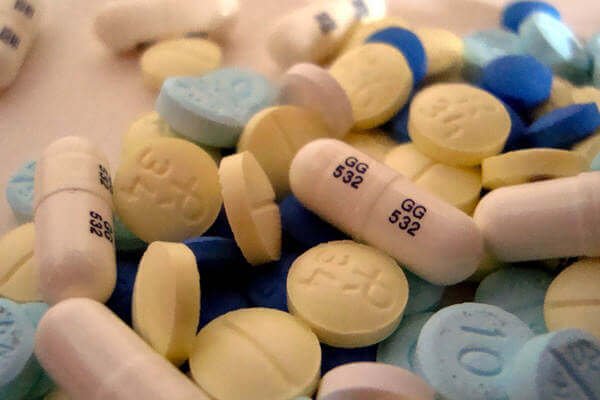Medication or Therapy? Which One is Better?


Written and verified by the psychologist Sergio De Dios González
When you see a doctor for some kind of mental illness or emotional problem, what should happen? The fact is that you’re probably going to be prescribed medication or be sent to a psychiatrist. But not a psychologist, even if you ask for a referral to a psychologist. It begs the question: medication or therapy? Are pills more effective than psychological therapy?
We take the easy road, a pill to make all our problems disappear. But they don’t disappear. They’re still there when you stop taking the medication. Or will you take it for the rest of your life? So, what’s the solution?
Read on and find out why treatment with a cognitive-behavioral psychologist is better, or at least the best complement for a treatment plan that may begin with medication.
“Psychology, unlike chemistry, unlike algebra, unlike literature, is an owner’s manual for your own mind. It’s a guide to life.”
-Daniel Goldstein-
Medication or therapy: the problem with psychotropic drugs
The purpose of this article is not to try to put an end to psychotropic drugs forever. The reality is that there are indeed times when they are necessary and good. The point is that they are over-prescribed.
Health professionals are aware of the side effects of this type of medication, both in the short- and long-term. But that’s not the only problem. Their effectiveness is doubtful in treating certain psychological disorders and they’re only prescribed because they’re the most economical solution in the short term, given our health system.

So, why are they used so much? On the one hand, there are the economic interests of the pharmaceutical industry. On the other hand, it is the patients themselves who want their discomfort to go away by taking a pill. They don’t want to put in the work.
Medication or therapy: why is cognitive-behavioral psychological therapy better?
But if I want to fix the problem quickly and “painlessly”, why is that bad? Because it doesn’t actually solve the problem. Let me explain. Yes, psychotropic drugs may help reduce your anxiety or improve your mood while taking them. But what about after that?
What will happen when you stop taking the pill? That emotional discomfort reappears. Why? Because you have not learned strategies to handle it. One thing we all know is that life will hand us situations when it will be normal to feel bad. However, if we don’t learn how to control our negative emotions, they can go from temporary to very long-lasting.
“The best years of your life are the ones in which you decide your problems are your own. You do not blame them on your mother, the environment, or the president. You realize that you control your own destiny”.
-Albert Ellis-
That’s where the problem is. Medicine can alleviate your depression or anxiety, but it is quality psychological therapy that will give you tools to control negative emotions yourself. Tools that you will be able to keep using when therapy ends.

Medication or therapy: what does therapy do that medication doesn’t?
Apart from giving you emotional management strategies that will serve you your whole life, therapy has neither the health risks nor the adverse side effects of psychotropic drugs. In addition, in economic terms, it is a cheaper option. But it has even more advantages than that.
For example, patients tend to follow psychological treatment better than a medication plan. The recovery rate is higher and the risk of relapse is considerably lower. This, in turn, keeps disorders from becoming chronic.
“Self-knowledge and personal development are difficult for most people. It usually requires a lot of courage and perseverance”
-Abraham Maslow-
Now let’s think about one thing: what do we value more, something that’s easy or something that takes work? The latter, right? When we see our work pay off, we feel better. We feel emotions like joy and fulfillment. So, psychological therapy doesn’t just teach you to handle your negative emotions but also boosts your self-esteem and mood.
To conclude, cognitive-behavioral therapy is recommended as the treatment of choice for most psychological disorders. Medication is necessary in severe cases but is almost always accompanied by psychological treatment.
Images courtesy of Freestocks.org, Drew Hays, and Breather.
When you see a doctor for some kind of mental illness or emotional problem, what should happen? The fact is that you’re probably going to be prescribed medication or be sent to a psychiatrist. But not a psychologist, even if you ask for a referral to a psychologist. It begs the question: medication or therapy? Are pills more effective than psychological therapy?
We take the easy road, a pill to make all our problems disappear. But they don’t disappear. They’re still there when you stop taking the medication. Or will you take it for the rest of your life? So, what’s the solution?
Read on and find out why treatment with a cognitive-behavioral psychologist is better, or at least the best complement for a treatment plan that may begin with medication.
“Psychology, unlike chemistry, unlike algebra, unlike literature, is an owner’s manual for your own mind. It’s a guide to life.”
-Daniel Goldstein-
Medication or therapy: the problem with psychotropic drugs
The purpose of this article is not to try to put an end to psychotropic drugs forever. The reality is that there are indeed times when they are necessary and good. The point is that they are over-prescribed.
Health professionals are aware of the side effects of this type of medication, both in the short- and long-term. But that’s not the only problem. Their effectiveness is doubtful in treating certain psychological disorders and they’re only prescribed because they’re the most economical solution in the short term, given our health system.

So, why are they used so much? On the one hand, there are the economic interests of the pharmaceutical industry. On the other hand, it is the patients themselves who want their discomfort to go away by taking a pill. They don’t want to put in the work.
Medication or therapy: why is cognitive-behavioral psychological therapy better?
But if I want to fix the problem quickly and “painlessly”, why is that bad? Because it doesn’t actually solve the problem. Let me explain. Yes, psychotropic drugs may help reduce your anxiety or improve your mood while taking them. But what about after that?
What will happen when you stop taking the pill? That emotional discomfort reappears. Why? Because you have not learned strategies to handle it. One thing we all know is that life will hand us situations when it will be normal to feel bad. However, if we don’t learn how to control our negative emotions, they can go from temporary to very long-lasting.
“The best years of your life are the ones in which you decide your problems are your own. You do not blame them on your mother, the environment, or the president. You realize that you control your own destiny”.
-Albert Ellis-
That’s where the problem is. Medicine can alleviate your depression or anxiety, but it is quality psychological therapy that will give you tools to control negative emotions yourself. Tools that you will be able to keep using when therapy ends.

Medication or therapy: what does therapy do that medication doesn’t?
Apart from giving you emotional management strategies that will serve you your whole life, therapy has neither the health risks nor the adverse side effects of psychotropic drugs. In addition, in economic terms, it is a cheaper option. But it has even more advantages than that.
For example, patients tend to follow psychological treatment better than a medication plan. The recovery rate is higher and the risk of relapse is considerably lower. This, in turn, keeps disorders from becoming chronic.
“Self-knowledge and personal development are difficult for most people. It usually requires a lot of courage and perseverance”
-Abraham Maslow-
Now let’s think about one thing: what do we value more, something that’s easy or something that takes work? The latter, right? When we see our work pay off, we feel better. We feel emotions like joy and fulfillment. So, psychological therapy doesn’t just teach you to handle your negative emotions but also boosts your self-esteem and mood.
To conclude, cognitive-behavioral therapy is recommended as the treatment of choice for most psychological disorders. Medication is necessary in severe cases but is almost always accompanied by psychological treatment.
Images courtesy of Freestocks.org, Drew Hays, and Breather.
This text is provided for informational purposes only and does not replace consultation with a professional. If in doubt, consult your specialist.







